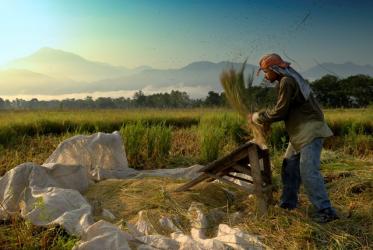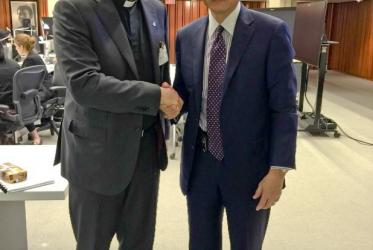Displaying 261 - 280 of 280
Consultation considers right to food in context of climate change
15 December 2015
Action Alert: AIDS 2016 - Applications open for interfaith chaplains
11 December 2015
COP21: how climate change affects access to our daily bread
09 December 2015
Religionsverantwortliche drängen zum Handeln bei UN‑Klimagipfel
02 December 2015
Faith leaders urge action at UN climate talks
02 December 2015
Kein Platz für Hunger in einer Welt des Überflusses
02 October 2015
No place for hunger in a world of abundance
02 October 2015
Everyone urged to join Zero Hunger Challenge
29 June 2015
WCC considers AIDS report a “valuable tool”
26 June 2015









